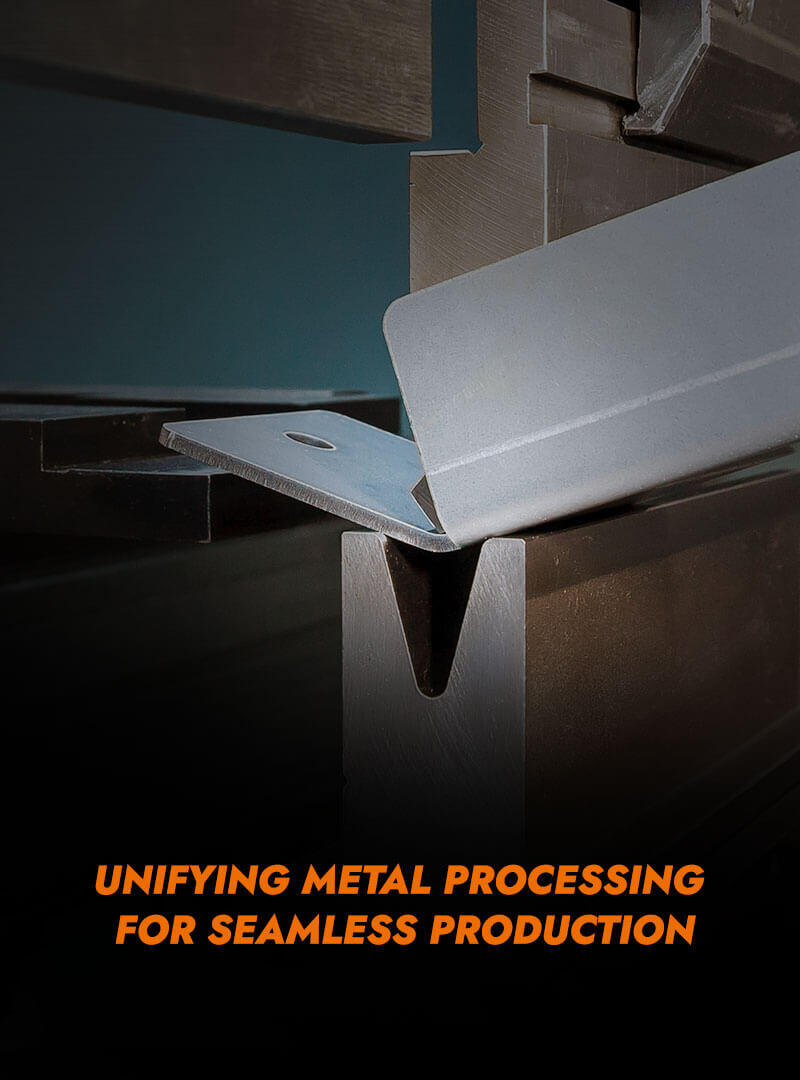- Home
- MANUFACTURING PROCESS
MANUFACTURING PROCESS
HERE ARE THE CHARACTERISTIC PROCESS FOR EACH PRODUCTION STEP











01
DEVELOPMENT AND DESIGN
- Understanding customer needs and product specifications.
- Perform product design and engineering analysis.
- Create design drawings.
- Confirm and discuss with the customer, make modifications and adjustments.
- Finalize the design and proceed to the next stage of production.

02
LASER CUTTING
- Preparation for process conversion.
- Analyze heat-affected and burr-generating areas.
- Convert design drawings to program control for cutting.
- Verify details after forming.

03
EDGE DEBURRING
- Remove burrs generated during the cutting process.
- Ensure smooth and safe edges of the finished product without sharp corners.
- Perform surface treatment to enhance durability and aesthetics.

04
DRILLING / TAPPING / CHAMFERING
- Utilize precision drilling equipment for accurate hole positioning.
- Perform tapping operations according to specifications and design requirements.
- Perform chamfering to prevent sharp edges and corners.

05
BENDING AND FORMING
- Perform pre-analysis prior to bending operations based on design requirements and specifications.
- Utilize precision press brake equipment with tooling to perform bending and forming of sheet metal.
- Achieve the desired angles and shapes.
- Utilize fixtures to prevent deformation and ensure consistency of the finished products.

06
SELF-INSPECTION
- Perform self-inspection during the process to ensure product quality.
- Utilize inspection instruments and tools for dimensional and specification checks.
- Conduct visual inspections to ensure integrity of the appearance.
- Record inspection results and make necessary adjustments and corrections.

07
WELDING ASSEMBLY
- Perform pre-confirmation of welding positions, deformation levels, and welding requirements.
- Carry out high-quality assembly welding operations based on welding processes.
- Ensure the strength of welds and the durability of welded products.

08
AUTOMATED WELDING ASSEMBLY
- Utilize robotic welding equipment for component welding assembly operations.
- Enhance production efficiency and consistency.
- Reduce human errors and operational risks.
- Ensure high precision and high-quality welding results.

09
QUALITY INSPECTION
- Conduct comprehensive quality inspections to ensure products meet specifications and quality standards.
- Utilize specialized inspection equipment and measurement tools for various tests.
- Test mechanical performance, durability, and other key characteristics.
- Inspect consistency and quality of welding, bending, and other processes.

10
CLEANING AND PACKAGING
- Perform cleaning to remove residues and contaminants after the production process.
- Utilize appropriate packaging materials and methods to ensure product protection and safety.
- Label and identify products accurately for easy identification of specifications.
- Ensure cleanliness and integrity before shipping.

11
SHIPPING
- Arrange shipping and logistics transportation to ensure timely delivery.
- Select suitable transportation methods and packaging techniques.
- Track the shipping status and provide accurate logistics information.
- Assist customers with customs clearance and documentation procedures to ensure smooth customs procedures and delivery.


